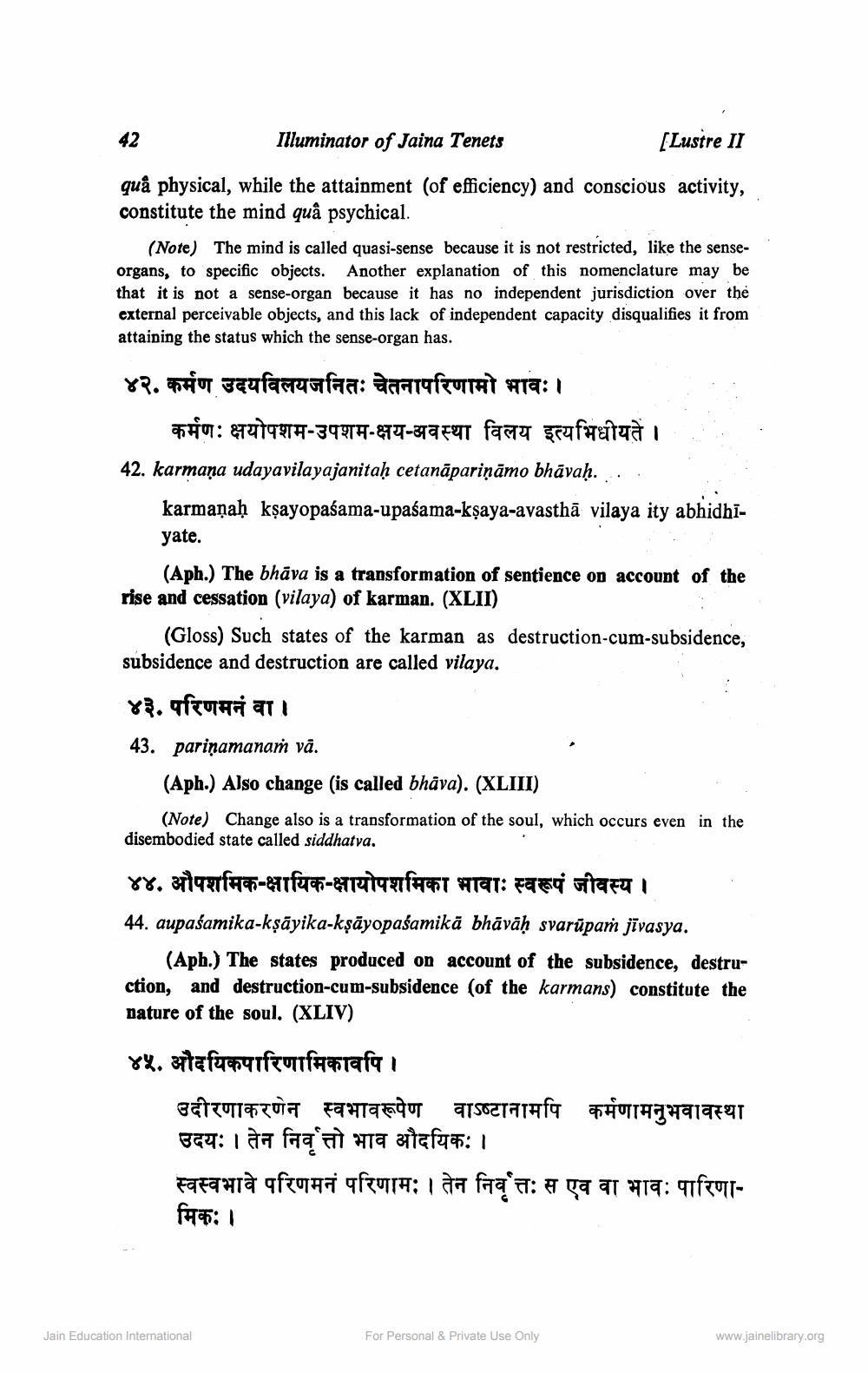________________
Illuminator of Jaina Tenets
[Lustre II
qua physical, while the attainment (of efficiency) and conscious activity, constitute the mind quâ psychical.
42
(Note) The mind is called quasi-sense because it is not restricted, like the senseorgans, to specific objects. Another explanation of this nomenclature may be that it is not a sense-organ because it has no independent jurisdiction over the external perceivable objects, and this lack of independent capacity disqualifies it from attaining the status which the sense-organ has.
४२. कर्मण उदयविलयजनितः चेतनापरिणामो भावः ।
कर्मणः क्षयोपशम-उपशम-क्षय अवस्था विलय इत्यभिधीयते । 42. karmana udayavilayajanitah cetanāparināmo bhāvah.
karmanah kşayopaśama-upaśama-ksaya- avasthā vilaya ity abhidhiyate.
(Aph.) The bhāva is a transformation of sentience on account of the rise and cessation ( vilaya) of karman. (XLII)
(Gloss) Such states of the karman as destruction-cum-subsidence, subsidence and destruction are called vilaya.
४३. परिणमनं वा ।
43. parinamanam vā.
(Aph.) Also change ( is called bhāva ) . (XLIII )
(Note) Change also is a transformation of the soul, which occurs even in the disembodied state called siddhatya,
४४. औपशमिक क्षायिक क्षायोपशमिका भावाः स्वरूपं जीवस्य ।
44. aupaśamika-ksāyika-ksāyopasamikā bhāvāh svarūpam jīvasya.
(Aph.) The states produced on account of the subsidence, destru ction, and destruction-cum-subsidence (of the karmans) constitute the nature of the soul. (XLIV)
४५. औदयिकपारिणामिकावपि ।
उदीरणाकरणेन स्वभावरूपेण वाऽष्टानामपि कर्मणामनुभवावस्था उदयः । तेन निर्वृत्तो भाव औदयिकः ।
स्वस्वभावे परिणमनं परिणामः । तेन निर्वृत्तः स एव वा भावः पारिणामिकः ।
Jain Education International
For Personal & Private Use Only
www.jainelibrary.org




